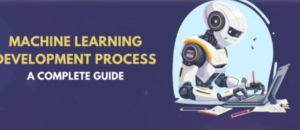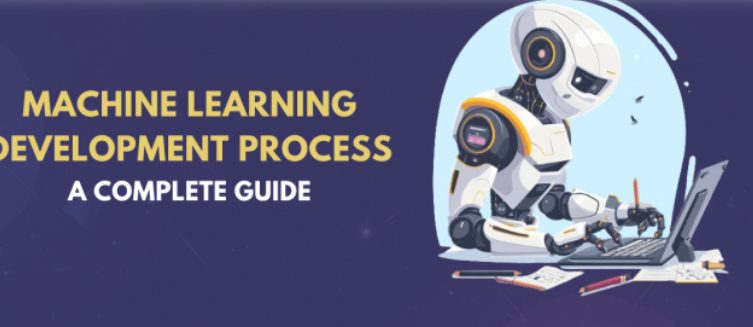AI in Health: Cure or Fad?
Artificial Intelligence, or AI, no longer remains a buzzword in the tech circles; rather, it’s turning out to be a real game-changer across different industries, more so in health. With continuous improvement, AI technologies are finding their applications in patient care, diagnosis, and operational efficiency. However, with great promise comes great scrutiny. Is AI really a revolution in healthcare, or is it just overhyped? This article looks at the existing landscape of AI in healthcare, its benefits, challenges, and the future it holds.
1. Understanding AI in Healthcare: Artificial Intelligence refers to any computer system designed to exhibit human-like cognitive functions like the capability of learning, reasoning, and deciding. In healthcare, these AI systems help analyze a huge volume of data to find insights and automatically perform tasks; these support the clinical decisions. Several key areas in which AI finds its applications are as under :
- Diagnostics: AI algorithms can analyze medical images, lab results, and patient records for accurate diagnosis by the doctor.
- Personalized Medicine: AI will have a major role in the personalization of treatment plans, as it bases decisions on particular patients’ data, which could lead to better treatment outcomes.
- Operational Efficiency: AI-powered tools automate much of the administrative work involved in appointment scheduling to patient flow management, freeing healthcare providers to spend more hours caring for their patients.
2. What AI Offers to Health Care
The potential benefits of AI in health are great. Let’s delve into some major advantages:
a. Improved diagnostics
Most AI systems, particularly those which rely on deep learning methods, are brilliant when it comes to image analysis. Various studies have found that AI can diagnose certain types of cancers, such as breast and skin cancers, with a high degree of accuracy comparable to or better than human doctors. Through identifying anomalies in X-rays and MRIs, AI will allow early diagnosis by doctors with more accuracy.
b. Enhanced Patient Outcome
Due to the ability of AI to process large volumes of data, doctors can create more personalized treatment plans. The algorithms of machine learning may support the analysis of patient history, genetics, and other real-time health data to recommend the best course of treatment. Personalized treatment, in turn, has the potential to improve patient outcomes and reduce healthcare expenses.
c. Smooth Operations
Administrative tasks by health providers take up so much time. AI automates simple tasks of scheduling, billing, and EHR management. This will not only save time but also reduce the likelihood of human error, hence improving efficiency and enhancing patient care.
d) Predictive Analytics
AI will be able to scan through historical health data to predict outbreaks of diseases, patient admissions, and much more. Predictive analytics can afford health systems with preparation and possibly averting public health crises that improve patient care and resource utilization.
3. Challenges and Concerns
The integration of AI into the healthcare system is not without its challenges. There are critical issues that will need to be supported:
a. Data Privacy and Security
Health information is sensitive, and there should be privacy, which must be strictly kept confidential. AI systems are sometimes obliged to work on heavy data sets, thus begging questions about patient privacy and security. For this reason, AI applications must be focused on regulations such as HIPAA, which will enable the protection of patients’ information.
b. Algorithmic Bias
AI systems learn from the data with which they are trained. In that case, biased or unrepresentative training data can lead to recommendations from an AI that may result in unequal healthcare outcomes. Algorithmic bias needs to be brought into the light so as to ensure equity of care for all patients.
c. Trust and Acceptance
Health professionals are wary of a full integration of AI, as many have pointed out the inaccuracies and unreliability of AI systems, while some have trumpeted the losses in human jobs. Much work is still required to create trust in these AI systems through rigorous testing, transparency, and clear articulation of benefits that will lead to wide acceptance.
d. Regulatory Hurdles
The medical industry is one of the most regulated, and it is notorious for its complexity. Compliance considerations may further complicate the introduction of AI technologies into healthcare. One of the key balancing acts will be the efforts to make certain that AI applications comply with regulations without stifling innovation; thus, continued dialogue among stakeholders will be necessary.
4. Future of AI in Healthcare
The future of AI in health looks brilliant, but much of its future success will depend on the resolution of current challenges facing it. Among them is:
a. Integration with Telemedicine
With telemedicine becoming increasingly popular, AI is bound to take remote consultations up a notch by enabling real-time data analysis that will inform doctors in making proper decisions while on virtual visits. Such integration can also serve to increase patient access to care in underserved areas.
b. AI-Driven Clinical Decision Support
AI systems will become regular tools, assisting the clinician with clinically appropriate, evidence-based recommendations about the management of the patient. In this respect, the collaboration between human and machine will result in enhanced decision-making processes and allow improved patient outcomes.
c. Continuous Learning and Improvement
The ability of an AI system to learn continuously from new data enables it to modify performance based on experience. The algorithms would keep getting refined as more data became available, leading to increased accuracy in the field of prediction and diagnosis.
d. Emphasize Patient-Centric Care
Future generations of AI technologies will have an increased emphasis on patient-centric care. This is the truest potential of AI as an enabler of improved communication on the part of patients and providers by aligning care plans to the preferences and needs of patients.
Conclusion
AI in health care is much more than hype; it’s a transformative force that has the potential to amplify diagnostics, personalized treatments, and operational efficiency. Once all these challenges are overcome, AI will have complete freedom to tap its full capacity regarding data privacy, algorithmic bias, and trust required. Working out this intricate dance will develop an AI-driven health care that is truly much more practical, at the same time far more equitable and patient-centered.
Moving forward, it requires teamwork by all stakeholders: health-care providers, technologists, regulators, and patients to come up with guidelines on ethics and best practices as regards integrating AI into health care. This is how we can actually have AI as a healing tool and move toward a healthier future.

Also Read :
